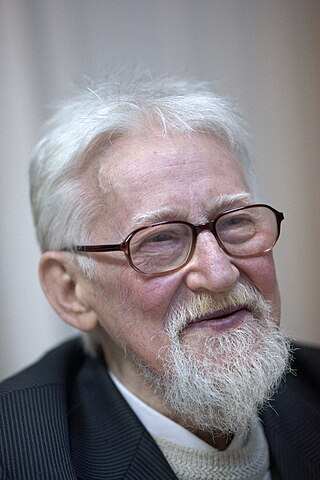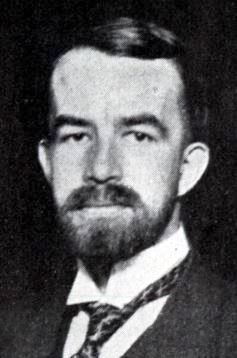
The Slavic languages, also known as the Slavonic languages, are Indo-European languages spoken primarily by the Slavic peoples and their descendants. They are thought to descend from a proto-language called Proto-Slavic, spoken during the Early Middle Ages, which in turn is thought to have descended from the earlier Proto-Balto-Slavic language, linking the Slavic languages to the Baltic languages in a Balto-Slavic group within the Indo-European family.

The Balto-Slavic languages form a branch of the Indo-European family of languages, traditionally comprising the Baltic and Slavic languages. Baltic and Slavic languages share several linguistic traits not found in any other Indo-European branch, which points to a period of common development and origin.

Shtokavian or Štokavian is the prestige supradialect of the pluricentric Serbo-Croatian language and the basis of its Serbian, Croatian, Bosnian and Montenegrin standards. It is a part of the South Slavic dialect continuum. Its name comes from the form for the interrogative pronoun for "what" što. This is in contrast to Kajkavian and Chakavian.

Kajkavian is a South Slavic supradialect or language spoken primarily by Croats in much of Central Croatia and Gorski Kotar.

Chakavian or Čakavian is a South Slavic supradialect or language spoken by Croats along the Adriatic coast, in the historical regions of Dalmatia, Istria, Croatian Littoral and parts of coastal and southern Central Croatia, as well as by the Burgenland Croats as Burgenland Croatian in southeastern Austria, northwestern Hungary and southwestern Slovakia as well as few municipalities in southern Slovenia on the border with Croatia.
The glottalic theory is that Proto-Indo-European had ejective stops, *pʼ *tʼ *kʼ, instead of the plain voiced ones, *b *d *ɡ as hypothesized by the usual Proto-Indo-European phonological reconstructions.

Proto-Balto-Slavic is a reconstructed hypothetical proto-language descending from Proto-Indo-European (PIE). From Proto-Balto-Slavic, the later Balto-Slavic languages are thought to have developed, composed of the Baltic and Slavic sub-branches, and including modern Lithuanian, Polish, Russian and Serbo-Croatian, among others.
In historical linguistics, Italo-Celtic is a hypothetical grouping of the Italic and Celtic branches of the Indo-European language family on the basis of features shared by these two branches and no others. There is controversy about the causes of these similarities. They are usually considered to be innovations, likely to have developed after the breakup of the Proto-Indo-European language. It is also possible that some of these are not innovations, but shared conservative features, i.e. original Indo-European language features which have disappeared in all other language groups. What is commonly accepted is that the shared features may usefully be thought of as Italo-Celtic forms, as they are certainly shared by the two families and are almost certainly not coincidental.
Studies in Slavic and General Linguistics (SSGL) is an academic book series that was founded in 1980 by A.A. Barentsen, B.M. Groen and R. Sprenger and is published by Rodopi.

Vladimir Antonovich Dybo is a Soviet and Russian linguist, Doctor Nauk in Philological Sciences (1979), Professor (1992), Academician of the Russian Academy of Sciences (2011). A specialist in comparative historical linguistics and accentology, he is well-known as one of the founders of the Moscow School of Comparative Linguistics.
Winter's law, named after Werner Winter, who postulated it in 1978, is a proposed sound law operating on Balto-Slavic short vowels */e/, */o/, */a/, */i/ and */u/ according to which they lengthen before unaspirated voiced stops, and that syllable gains rising, acute accent.
Hirt's law or Hirt–Illich-Svitych's law, named after Hermann Hirt, who originally postulated it in 1895, is a Balto-Slavic sound law that triggered the retraction of the accent under certain conditions.
Proto-Indo-European accent refers to the accentual (stress) system of the Proto-Indo-European language.
Ivšić's law, also Stang's law or Stang-Ivšić's law, is a Common Slavic accent law named after Stjepan Ivšić (1911) and Christian Schweigaard Stang (1957); the two linguists independently discovered the law in those years.
The Slavic second palatalization is a Proto-Slavic sound change that manifested as a regressive palatalization of inherited Balto-Slavic velar consonants that occurred after the first and before the third Slavic palatalizations.

Christian Schweigaard Stang was a Norwegian linguist, Slavicist and Balticist, professor in Balto-Slavic languages at the University of Oslo from 1938 until shortly before his death. He specialized in the study of Lithuanian and was highly regarded in Lithuania.

Proto-Slavic is the unattested, reconstructed proto-language of all Slavic languages. It represents Slavic speech approximately from the 2nd millennium B.C. through the 6th century A.D. As with most other proto-languages, no attested writings have been found; scholars have reconstructed the language by applying the comparative method to all the attested Slavic languages and by taking into account other Indo-European languages.
Proto-Slavic accent is the accentual system of Proto-Slavic and is closely related to the accentual system of some Baltic languages with which it shares many common innovations that occurred in the Proto-Balto-Slavic period. Deeper, it inherits from the Proto-Indo-European accent. In modern languages the prototypical accent is reflected in various ways, some preserving the Proto-Slavic situation to a greater degree than others.
The Proto-Slavic language, the hypothetical ancestor of the modern-day Slavic languages, developed from the ancestral Proto-Balto-Slavic language, which is the parent language of the Balto-Slavic languages. The first 2,000 years or so consist of the pre-Slavic era, a long period during which none of the later dialectal differences between Slavic languages had yet happened. The last stage in which the language remained without internal differences that later characterize different Slavic languages can be dated around AD 500 and is sometimes termed Proto-Slavic proper or Early Common Slavic. Following this is the Common Slavic period, during which the first dialectal differences appeared but the entire Slavic-speaking area continued to function as a single language, with sound changes tending to spread throughout the entire area. By around 1000, the area had broken up into separate East Slavic, West Slavic and South Slavic languages, and in the following centuries it broke up further into the various modern Slavic languages of which the following are extant: Belarusian, Russian, Rusyn and Ukrainian in the East; Czech, Slovak, Polish, Kashubian and the Sorbian languages in the West, and Bulgarian, Macedonian, Serbo-Croatian and Slovenian in the South.
Mate Kapović is a Croatian linguist specializing in Indo-European, Slavic languages and the Proto-Balto-Slavic language. He studied Croatian language and linguistics at the Faculty of Arts of University of Zagreb. He graduated in 2003 and he has been teaching at the same university since 2004. In 2007, he obtained his doctorate at the Faculty of Philosophy of University of Zadar.







